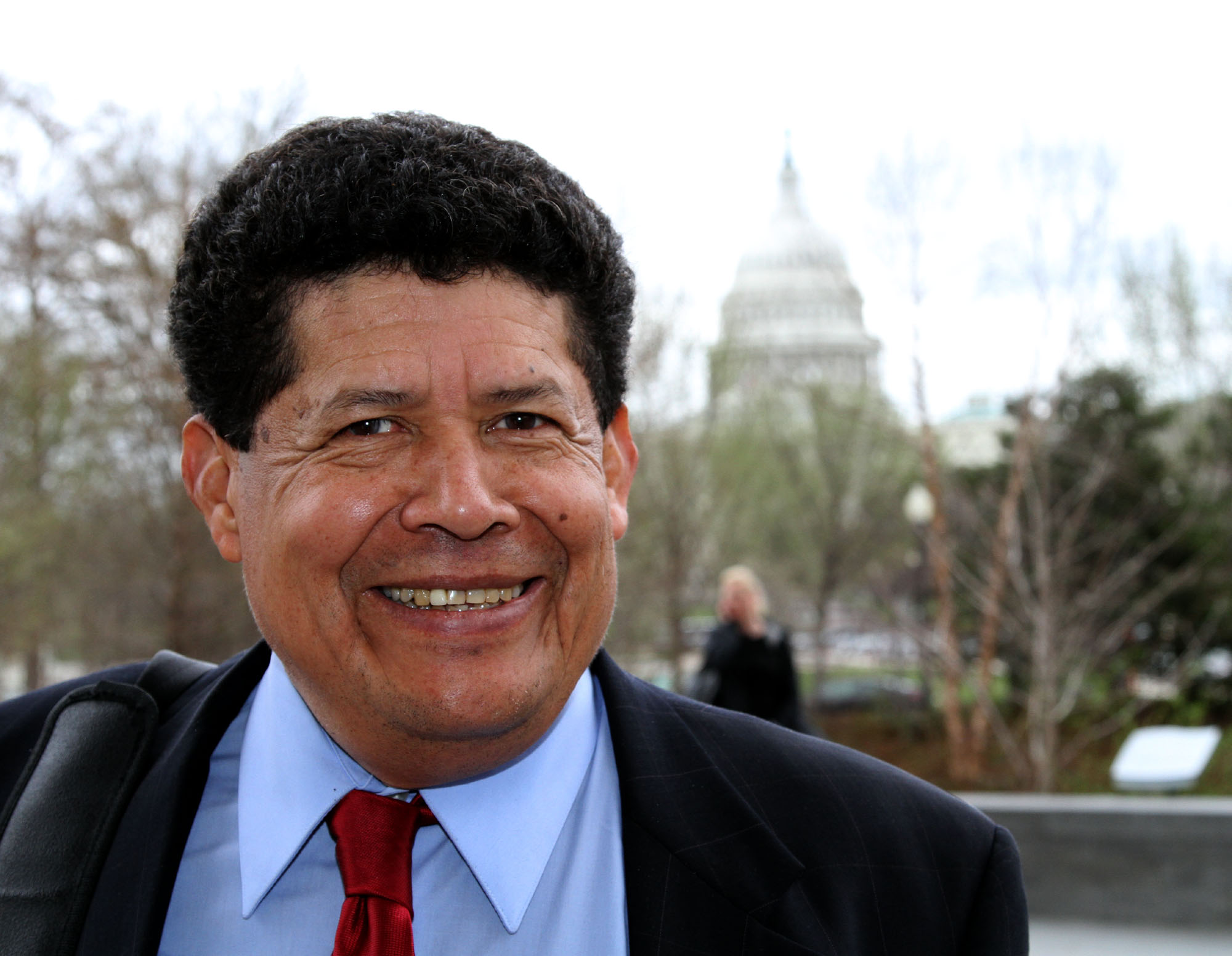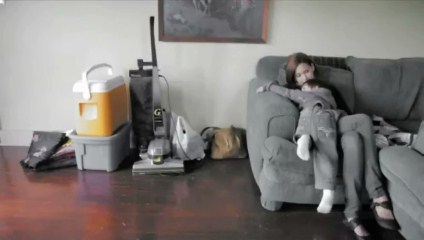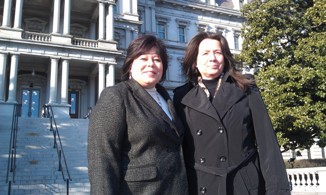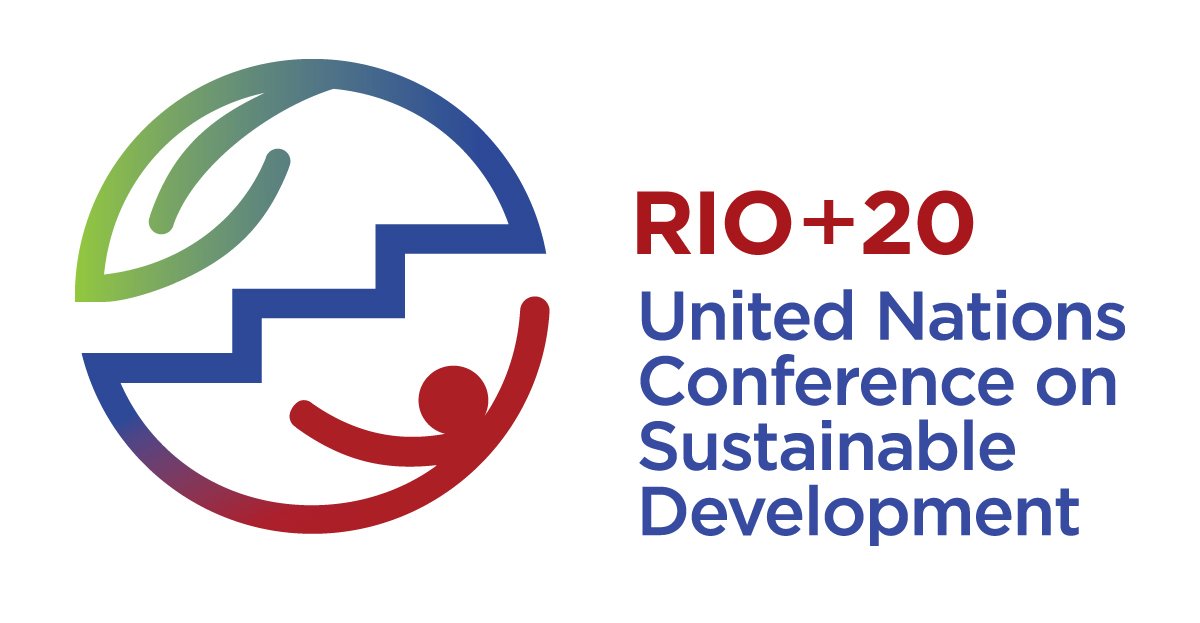
 | |
| Why we need an American Declaration on the Rights of Indigenous Peoples | |
| |
| Implementing the UN Declaration - Law Reform in the U.S. | |
Securing Indigenous Rights to Sacred Places with the UN Declaration
As Onkwehonwe (original, or indigenous, peoples), our identity, nationhood, and survival are inextricably tied to our homelands and sacred places. Yet, we are restricted by arbitrary reservation boundaries and an unfair legal system that prevent us from honoring many of our beliefs. The UN Declaration on the Rights of Indigenous Peoples presents a new opportunity and a new kind of legal authority that could help Native peoples to secure rights to sacred places, and to preserve and protect cultural, religious, and spiritual practices. (More...) | |
| |
"We need to educate ourselves so we can all see how this will benefit us," said Carol Goodbear, Mandan Hidatsa Nation. (More...) | |
The Law of Self-Determination and the United Nations Declaration on the Rights of Indigenous Peoples
| |
| Senate Support for Violence Against Women Reauthorization Act Reaches Critical Milestone | |
Two critical bills now pending in Congress offer promise in the battle to end violence against Native women: S. 1763, the Stand Against Violence and Empower (SAVE) Native Women Act, introduced by Senator Akaka (D-HA), and S. 1925, the Violence Against Women Reauthorization Act, introduced by Senator P. Leahy (D-VT).
S. 1925 now has 61 bipartisan sponsors, a level of support that makes the bill filibuster-proof and a record of support that can be matched by less than a dozen of the bills pending in Congress.
Center board and staff members joined Alaska Senators Lisa Murkowski and Mark Begich and Representative Don Young in a rally at the U.S. Capitol to show of support for Governor Parnell’s “Choose Respect” initiative and to march against the plague of domestic violence and sexual assault that harms Alaska. (See photos...) | |
| Bringing Indigenous Rights to Rio+20 | |
It is critical that commitments or frameworks coming out of Rio+20 1) take bold steps to address the sustainability crises which threaten indigenous peoples, such as climate change; 2) ensure that mechanisms are in place so that indigenous peoples’ rights and livelihoods are protected in all development activities; and 3) embrace development models which acknowledge the contribution of indigenous peoples to sustainable development. Unfortunately, what Center staff witnessed during the first round of Rio+20 negotiations failed on all three accounts. (More...) | |
| Support Justice for Indigenous Peoples! | |
Our work depends upon your generosity. Your donation will allow the Center to continue to provide legal representation to Native communities throughout the Americas. Please consider becoming a Monthly Giving Member. Doing so will provide a regular source of income to the Center – you may pledge and make monthly contributions at any level, and it's easy to set a pledge that automatically gets charged to your credit card every month.
| |
| Barbara L. Anthony Fellowship | |
This year, the Indian Law Resource Center is offering a new fellowship opportunity in our Helena, Montana, office for an individual with a serious interest in non-profit, public interest work. During the 8-week term, the Anthony Fellow will assist with and learn about the work of the Center including fund raising, communications strategy, and other work to protect and promote the rights of Indian and Alaska Native nations.
Application deadline: May 7, 2012 | Download the application instructions | |
| In the News | |
The Law of Self-Determination and the United Nations Declaration on the Rights of Indigenous Peoples “Mining is Equal to Misery”: The Human Rights Situation of Persons Affected by the Extractive Industries in the Americas Ten Ways for Mining Companies to Work Better with Indigenous People Using the UN Declaration to End the Epidemic of Violence Against Native Women Violence epidemic against women grows Tribes Lead Efforts to Implement UN Declaration |

 This week, the Working Group in charge of drafting the American Declaration on the Rights of Indigenous Peoples will hold its 14th negotiation session in Washington, D.C. An American Declaration is greatly needed to address the particular regional issues in the Americas that are not dealt with in the
This week, the Working Group in charge of drafting the American Declaration on the Rights of Indigenous Peoples will hold its 14th negotiation session in Washington, D.C. An American Declaration is greatly needed to address the particular regional issues in the Americas that are not dealt with in the 
 Although the 566 federally recognized American Indian and Alaska Native nations have inherent sovereign authority over their territories and people, their ability to protect Native women from violence and to provide them with meaningful remedies has been unjustly limited by
Although the 566 federally recognized American Indian and Alaska Native nations have inherent sovereign authority over their territories and people, their ability to protect Native women from violence and to provide them with meaningful remedies has been unjustly limited by  For the first time ever, Native nations have the opportunity to use the Declaration as the basis for defining a new era of federal Indian policy that more fully recognizes the inherent self-determination, economic development, and resource management rights of Native nations. This is a limited window of opportunity; Native nations must act quickly to establish and assert their rights under the Declaration and translate the Declaration into domestic law and policy.
For the first time ever, Native nations have the opportunity to use the Declaration as the basis for defining a new era of federal Indian policy that more fully recognizes the inherent self-determination, economic development, and resource management rights of Native nations. This is a limited window of opportunity; Native nations must act quickly to establish and assert their rights under the Declaration and translate the Declaration into domestic law and policy. 

 The United Nations Conference on Sustainable Development (UNCSD), commonly referred to as Rio+20, is a political process wherein the world’s leaders come together to create a framework for international action around sustainable development. This year’s negotiations build on the progress of the historic Earth Summit held 20 years ago in Rio de Janeiro, Brazil, which spurred the development of several critical environmental processes and agreements, including the United Nations Framework Convention on Climate Change and the Convention on Biological Diversity.
The United Nations Conference on Sustainable Development (UNCSD), commonly referred to as Rio+20, is a political process wherein the world’s leaders come together to create a framework for international action around sustainable development. This year’s negotiations build on the progress of the historic Earth Summit held 20 years ago in Rio de Janeiro, Brazil, which spurred the development of several critical environmental processes and agreements, including the United Nations Framework Convention on Climate Change and the Convention on Biological Diversity. 

 Barbara L. Anthony, 1956-2012, was the Center’s Development Director from 2009-2011. She served Helena’s non-profit community in many ways during her life and was widely known and loved for her generosity, selflessness, leadership, cheerfulness and energy in serving others. This fellowship is intended to foster and encourage the values Barbara exemplified.
Barbara L. Anthony, 1956-2012, was the Center’s Development Director from 2009-2011. She served Helena’s non-profit community in many ways during her life and was widely known and loved for her generosity, selflessness, leadership, cheerfulness and energy in serving others. This fellowship is intended to foster and encourage the values Barbara exemplified.